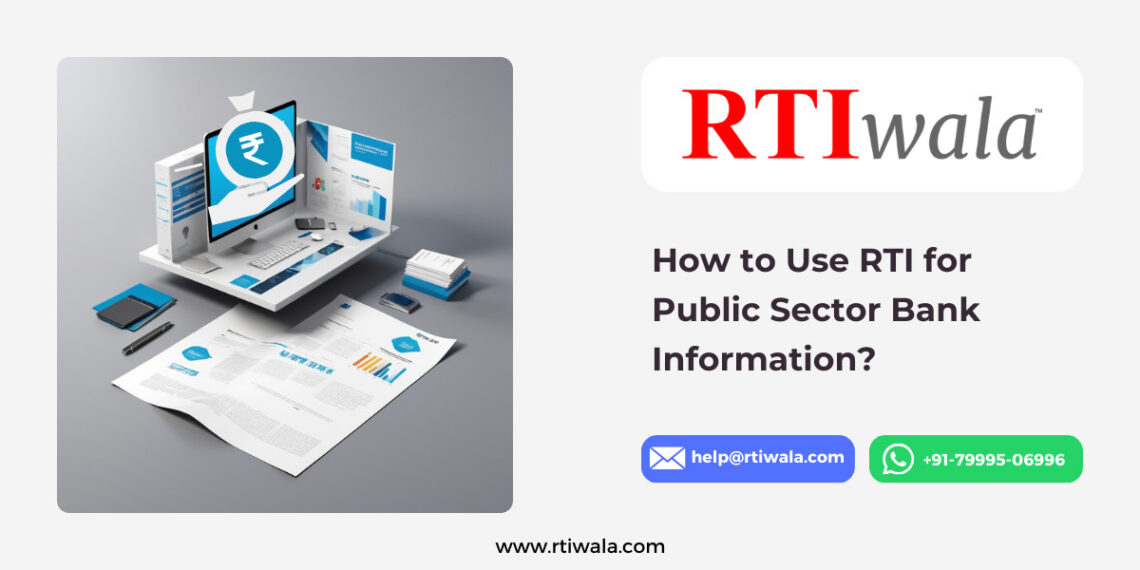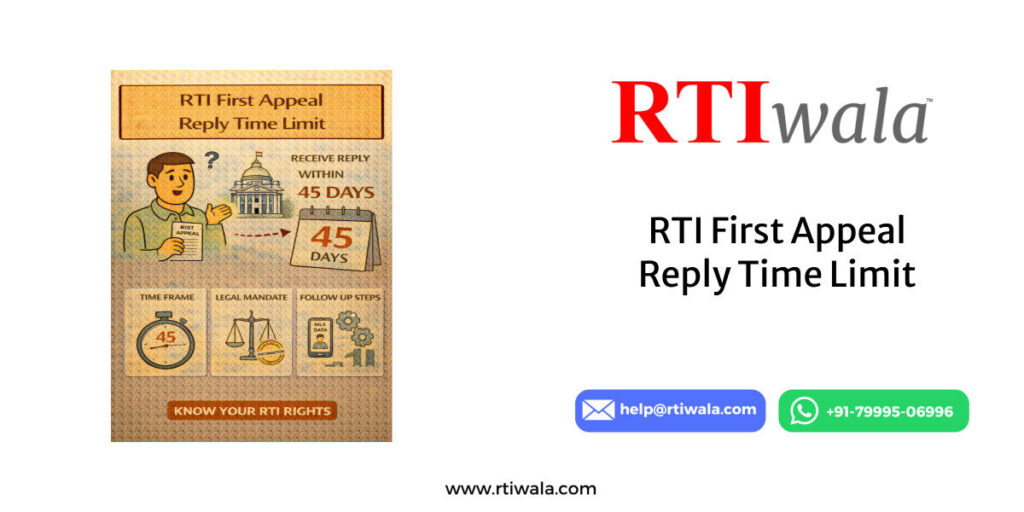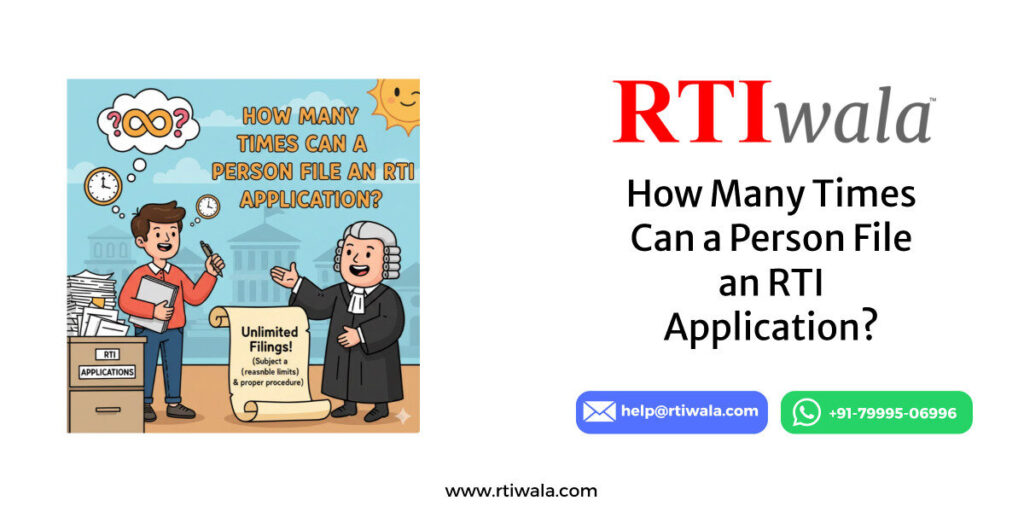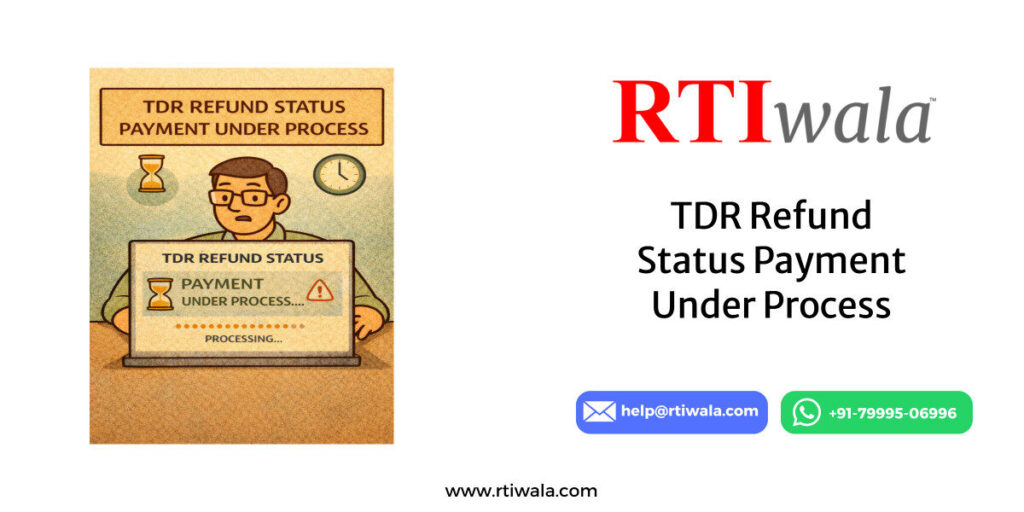Table of Contents
- Introduction
- Understanding RTI and Its Relevance to Public Sector Banks
- How to Use RTI for Accessing Information on Public Sector Bank Operations
- Types of Information You Can Request
- Step-by-Step Guide to Filing an RTI for Public Sector Bank Information
- Common Challenges and Solutions
- FAQs
- Conclusion
Introduction
Public sector banks play a critical role in India’s financial system, managing the savings and investments of millions of people. Ensuring transparency in their operations is essential for them to function effectively and serve the public’s best interests. The Right to Information (RTI) Act 2005 empowers citizens to request and access information about how public sector banks operate, helping to make the banking system more accountable and transparent. In this article, RTIwala will guide you through the process of using RTI to obtain information on the functioning and operations of public sector banks.
Understanding RTI and Its Relevance to Public Sector Banks
The Right to Information (RTI) Act 2005 allows Indian citizens to request information from any public authority, including public sector banks. These banks, as government-owned entities, fall under the purview of the RTI Act. Through RTI, you can seek information about various aspects of bank operations, such as loan disbursements, non-performing assets (NPAs), internal audits, and other financial activities. This helps in promoting transparency and holding these institutions accountable for their actions.
How to Use RTI for Accessing Information on Public Sector Bank Operations
Filing an RTI application to obtain information from public sector banks is a straightforward process. The RTI Act ensures that every citizen has the right to request information from public authorities, which includes public sector banks. By filing an RTI application, you can access details about bank operations that might not be publicly available through other channels.
For example, you can request information about:
- Loan approvals and disbursements
- Details of non-performing assets (NPAs)
- Internal audit reports
- Bank policies and procedures
- Financial performance reports
Types of Information You Can Request
Through RTI, you can request various types of information related to public sector banks, such as:
- Loan Details: Information on large loans granted to companies and individuals, especially those that have turned into NPAs.
- Internal Audits: Copies of internal audit reports that may highlight discrepancies or irregularities in bank operations.
- Financial Performance: Annual financial statements and reports that show the bank’s overall health.
- Policy Documents: Information on policies regarding loan disbursements, interest rates, customer service, etc.
- Staffing and HR Practices: Details about the recruitment process, promotions, and transfers of bank staff.
Step-by-Step Guide to Filing an RTI for Public Sector Bank Information
- Identify the Information You Need: Clearly define what information you want from the bank. Be specific to avoid vague responses.
- Draft Your Application: Write your RTI application in a simple and clear language. Include details like your name, address, and the specific information you are seeking.
- Submit Your Application: Submit the application to the designated Public Information Officer (PIO) of the bank. This can usually be done online or via post.
- Pay the Fee: A nominal fee is required to file an RTI. Payment methods may vary depending on the bank.
- Wait for the Response: The bank is required to respond within 30 days. If you don’t receive a response or are unsatisfied with it, you can file an appeal.
Common Challenges and Solutions
Filing an RTI for information on public sector bank operations can sometimes be challenging due to delays, incomplete responses, or refusal to provide certain information. Here are some common challenges and how to overcome them:
- Delayed Responses: If the bank delays its response, you can file a complaint with the Central Information Commission (CIC).
- Incomplete Information: If the information provided is incomplete or unclear, you can file an appeal with the appellate authority within the bank.
- Rejection of Application: If your RTI application is rejected, ensure that your request was specific and in line with the RTI guidelines. You can also appeal the rejection.
FAQs
- Can I request information about specific loans given by a public sector bank? Yes, you can request details about specific loans, including those that have become non-performing assets (NPAs).
- How long does it take to get a response to an RTI application from a public sector bank? The bank is required to respond within 30 days of receiving your RTI application.
- Can I request information about the salaries and benefits of bank employees? Yes, you can request information about the salaries, benefits, and other HR practices within the bank.
- What if the bank refuses to provide the information I requested? You can file an appeal with the appellate authority within the bank, and if necessary, escalate it to the Central Information Commission (CIC).
- How can RTIwala assist me in filing an RTI for public sector bank information? RTIwala can help you draft a clear and effective RTI application, submit it on your behalf, and guide you through the process to ensure you receive the information you need.
Conclusion
The RTI Act 2005 is a powerful tool that allows you to access vital information about public sector bank operations. By understanding how to use RTI effectively, you can help promote transparency, accountability, and better governance in the banking sector. If you’re unsure about how to proceed or need assistance in filing an RTI, RTIwala is here to help. Contact us today to ensure your RTI application is handled efficiently and effectively.





















































